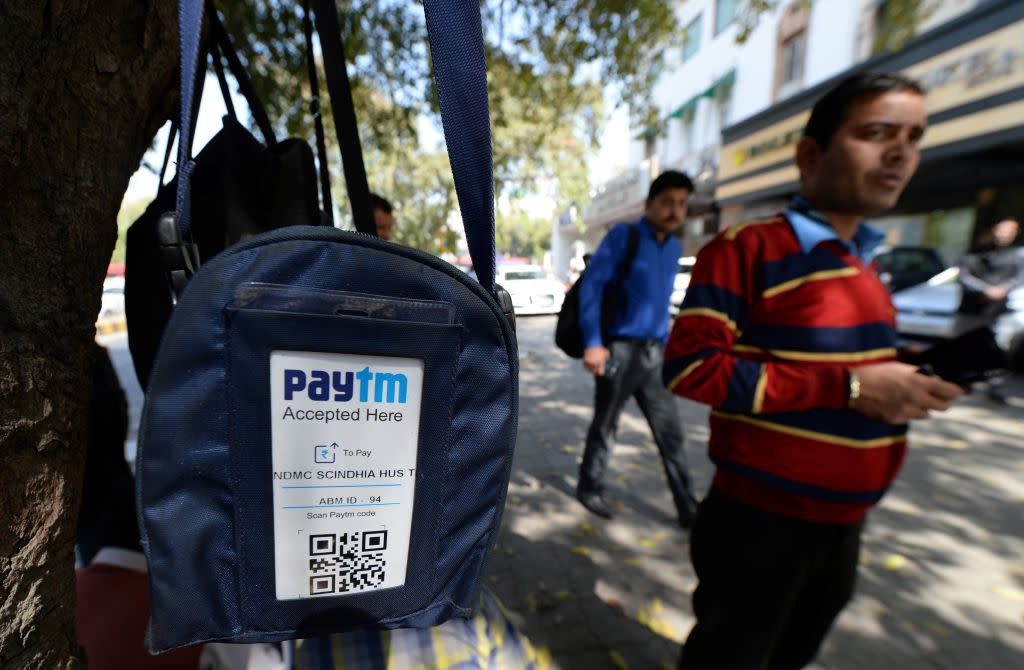Paytm warns of job cuts as losses swell after RBI clampdown

Indian digital payments platform Paytm warned of job cuts on Wednesday after reporting that its net loss widened in the fourth quarter as it grapples with a recent regulatory clampdown.
One97 Communications, Paytm's parent, said it expects to cut employee expenses and pare down its annual staff costs by $48 million to $60 million.
The company, once the most valuable Indian startup, reported a net loss of $66.1 million in the fourth quarter ended March 2024, compared to a loss of $20.11 million a year earlier. Revenue declined about 3% to $272.4 million from $280.4 million in the same period.
India's central bank in February banned the company's banking partner and sister company, Paytm Payments Bank, from conducting banking activity from March. That brought a sudden halt to Paytm's slew of banking services, and the company was forced to ink new partnerships with other banks to keep many of those services running.
Paytm said it also took an impairment charge of $27.2 million related to its investment in Paytm Payments Bank in the quarter. In the quarter ending June this year, Paytm projected its revenue to be in the range of $180 million to $192 million.
In the full year ended March, Paytm's revenue increased 25% to $1.19 billion from a year earlier, though higher payment processing charges, marketing costs, employee benefits charges and software cloud expenses weighed on its bottom line. As a result, net loss widened to $170 million from a loss of $213 million a year earlier.
Paytm's results include "enough data points to suggest that the business is past the bottom in terms of payment volumes and user/merchant traction," Bernstein analysts said in a note to clients. "Though from a financial metrics perspective, 1QFY25 is likely to be the bottom, as it would reflect the full impact of the lower steady state (vs. 2 months impact in 4QFY24)."
The analysts, however, cautioned that Paytm's payment GMV has dropped by about 20% and the company's expectations for its payment processing margin has also declined, which together "translates to a near 50% blow to the payment margins." They estimated, however, that Paytm's merchant lending volumes picked up in March and April — a clear sign of revival.
Paytm had about $1.03 billion in the bank as of March 31. The company's shares were down about 1% on Wednesday afternoon to ₹349.20, giving it a market cap of $2.64 billion. Paytm went public in 2021 at a valuation of $20 billion.
“I am happy to share that we have successfully transitioned our core payment business from PPBL to other partner banks. This move de-risks our business model and also opens up new opportunities for long-term monetization, given our platform's strength around customer and merchant engagement," said Paytm's founder and CEO, Vijay Shekhar Sharma, in the company's annual shareholder letter.
"It has been possible in such a short period of time with extensive support from the Regulator, NPCI, Bank partners and our committed team mates. The unwavering commitment of our government and regulator to support innovation and financial inclusion, keeps us true to our mission and committed to our long-term sustainable growth opportunity," he added.

